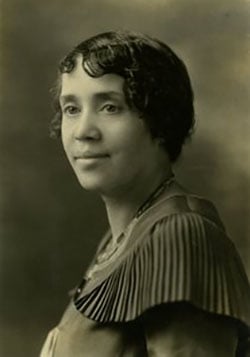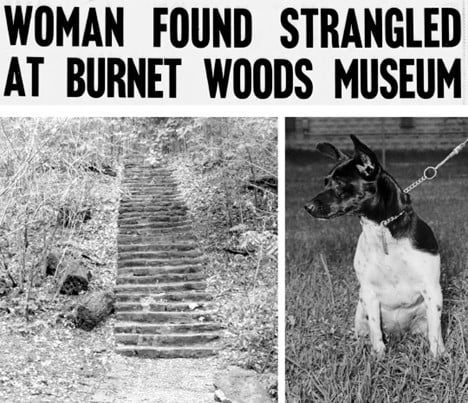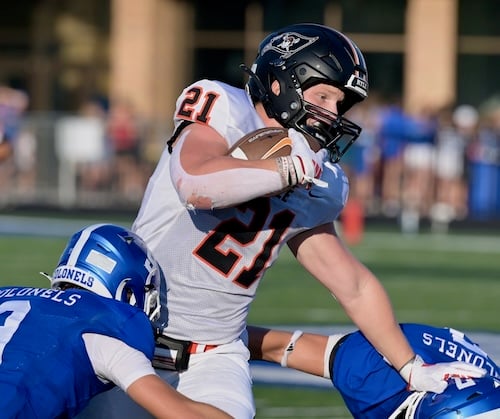When I was a very young kid growing up in Science Hill, Ky., my dad and I would watch professional football games on Sundays on a black-and-white television during the pre-Cincinnati Bengals days.
And the NFL’s Cleveland Browns were on television a lot. I remember my dad would often tell me, saying their head coach is from Kentucky and UK should have kept him.

That Cleveland coach at the time was Blanton Collier, a native Central Kentuckian who guided the legendary Browns from 1963 to 1970, winning nearly 70 percent of his games, including the 1964 NFL title.
Before he returned to Cleveland again in 1962 as an assistant to future Hall of Fame coach Paul Brown, Collier did very well at Kentucky. Mild-mannered Collier, who replaced Paul “Bear” Bryant at the UK helm, led the Wildcats for eight years, posting a very respectable overall mark of 41-36-3 while defeating rival Tennessee five times against two losses and one tie.
In addition, Collier’s coaching staffs at Kentucky included future NFL head coaches Don Shula, Bill Arnsparger and Howard Schnellenberger. In 1954, he was named the SEC Coach of the Year as the
Wildcats finished with a 7-3 mark, including a 13-6 win over 15th-ranked Georgia Tech in Atlanta.
Still, that wasn’t good enough for some folks at UK and the gentlemanly Collier was dismissed after the 1961 campaign as the university bought out three remaining years of his contract.
His daughter, Dr. Kay Collier McLaughlin of Lexington, recently discussed her father’s UK days.
“I have lots of mixed memories of the UK years,” she said. “I was at Henry Clay as a sophomore when he started, went through UK, married and my first child was born while he was trying to recruit Rodger Bird.
“The best memories are of ‘the boys,’ who were like brothers to me — many with whom I’m in touch today, the coaching staff and families. We were truly a family. I would run from our box to the field after home games to walk him to the dressing room.

“Another special memory is of his relationship with Warren Lutz, the band director who hung out at our house, with Marvin Rabin, the UK string (development) specialist who carried the yard markers (during the football games), with Bob Hazel, the creative writing teacher and other UK faculty
who considered him their friend. He had faculty status and was hours away from his doctorate.”
Collier McLaughlin also wrote an interesting book about her father, titled “Football’s Gentle Giant: The Blanton Collier Story,” which was published in 1985. Obviously, the book is out of print, but you still can find used copies on Amazon.com.
During his very early days as the basketball coach at Paris High School, Collier also did some scouting work for Kentucky basketball coach Adolph Rupp. They became good friends as well.
“He scouted for Rupp while he was teaching (mathematics) and coaching at Paris, and while in grad school (at UK),” recalled Collier McLaughlin. “Many expected him to be in line as Rupp’s successor because his basketball teams were so great as well as his Paris football teams.”
Collier’s basketball teams were outstanding, winning four regional titles.
“He was not the one who called himself a teacher,” added Collier McLaughlin of her father, who came from a family of educators. “He was only 20 when he started at PHS and thought ‘Mr.’ or ‘Coach’ was too formal. He was a big tease and called the girls in his classes ‘Martha’ and the boys ‘George.’ They started calling him George. (Later) he valued being called both teacher and coach.”
After Collier spent many years at Paris, he went to the U.S. Navy during World War II at the age of 37.
Then it was discovered the future NFL boss had a hearing disability.
“No one was ever sure whether daddy was born with the condition or whether it worsened on the rifle range in the Navy,” said Collier McLaughlin, who wrote in her book that he had an inoperable nerve deafness, involving loss of discrimination more than the loss of volume. In other words, if folks shout at him, it still wouldn’t help and he struggled in a room with lots of background noise.
Oddly, to make a long story short, it was his horrible hearing loss that somehow guided him to a future in pro and college football after meeting legendary Paul Brown at U.S. Navy’s Great Lakes Naval Training Station, near Chicago, where he had a football team.
And a determined Collier wouldn’t let his disability interfere with whatever he was doing and became an expert in lip reading. And hearing aids didn’t help, either.
“My dad also disliked beards as a lip reader,” recalled Collier McLaughlin. “It made things really difficult.”
When it came to the telephone, his wife, Mary Foreman, was a big help. Collier might have been able to hear the sound of voices but couldn’t distinguish the words.
“He would be on one phone and mother would be on another phone beside him writing down what the speaker said or asked, and he would respond,” said Collier McLaughlin. “Same thing when he would talk to us. I’m sure that’s probably why most people didn’t know (about his deafness). He would never
have met Paul Brown except for his ears.”
Even then-Cleveland Browns owner Art Modell tried to help Collier, who was great in one-on-one conversations.
“Art Modell did all in his power to check out any possibility for treatments that might work, even driving daddy to an acupuncturist he’d located,” said Collier McLaughlin.
What about his post-game sessions with media? Some reporters mumbled, had facial hair or used voice instead of moving their lips? How did the coach handle them?
“From what we were told by reporter friends like Hal Lebovitz in Cleveland and several here (in Kentucky), daddy did a pretty unbelievable job in lip-reading the majority of the time,” said Collier McLaughlin. “Hal said that he was so respected by the media that they would tag team if he misunderstood. He might get part of a sentence. Or hear a word differently and answer accordingly.
“Hal said they never wanted to embarrass him so (he) would simply restate the question. Even the players were amazed at the way he managed press conferences, sideline phones and team sessions. Media sessions always turned into teaching sessions, we were told. He was just a compulsive teacher. He enjoyed and respected the media and I think they responded to that.
“His biggest worry was the sideline phone to the press box, which was eventually why he retired.”
Needless to say, Blanton Collier, who was popularly known as the “old professor,” is a remarkable story about a gentleman who had found coaching success at higher levels despite his horrible hearing. Collier, who passed away in 1983, was a special man, the one who replaced football legends twice — Bear Bryant at Kentucky and Paul Brown at Cleveland.
But Collier is a legend, too, especially during his memorable years with the Cleveland Browns. He was also an innovative man who came up with then-radical approaches, such as graded film study and option blocking, which are currently in use in modern football.
With that in mind, should we consider the underrated coach known for his integrity and honesty for the Pro Football Hall of Fame? I think so.
If you’re interested, you can find more information about Collier and his career on the web site at www.coachcolliergroup.org (Blanton Collier Sportsmanship Group), promoting ethics in athletics.
Jamie H. Vaught, a longtime columnist in Kentucky, is the author of four books about UK basketball. He is the editor of KySportsStyle.com magazine and a professor at Southeast Kentucky Community and Technical College in Middlesboro. You can follow him on Twitter @KySportsStyle or reach him via e-mail at KySportsStyle@gmail.com.





















